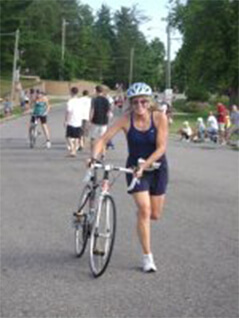Whether a professional athlete or a novice lifter, lower body training is critical to performance and physical well-being. One of the best ways to train the legs is by utilizing the squat. The squat is known as the “mother lift” for developing size, strength, and power in the lower body. No other lift incorporates as many muscle groups in a single motion as the squat. Not only will the squat develop strength and power - when incorporated in the right program, it can also drastically cut body fat percentage.
Thus far, the squat seems like the perfect training tool for everyone; however, first a professional must determine if the individual is ready to squat. A person must have the right amount of starting strength, joint stability and flexibility to perform the perfect squat. Without running a lower body structural balance test, this information is impossible to know. Starting a squat program without a structural assessment can lead to knee, hip and back injuries.
A simple yet effective test for lower body structural balance is the Overhead Squat Test. This test should be performed by a certified Progressive Sports Performance Strength Coach. During the test, the body's responses will show the coach valuable information that will be used in assessing whether the client is ready to squat or not. The test in itself looks simple: the client starts by standing with feet shoulder-width apart, holding a dowel rod in a snatch grip (wider than shoulders) extended above the head. The coach then instructs the individual to squat as low as possible, generally rear end to the heels. What the coach is assessing is the action of the knees, trunk, low back and heels during the squatting motion.
From this position, the individual is asked to perform 2-3 repetitions in a slow tempo, which allows the coach to answer the following questions:
- Do the knees fall in on the concentric phase? If so, the individual has weak Vastus Medialis (VMO) and Medial Glutes.
- Do the knees fall in and out quickly on the eccentric phase? If so, then the Tensor Fascia Latae (TFL) and Iliotibial Band (ITB) are tight.
- Is there excessive forward flexion of the trunk and arms? If so, then the Hip Flexor Complex, Pectorals and Latissimus Dorsi are tight.
- Is there rounding of the lower back in the bottom position of the squat? If so, then the Hamstrings are tight.
- Do the heels elevate on the eccentric phase? If so, the Gastrocnemius and Soleus are tight.
If the answer in any two of the five areas is yes, then the test has been failed. At that point, the individual would be instructed not to squat and seek out the advice of a certified PSP coach. A failed overhead squat test does not mean that one can never squat. It does mean that at this point in time the individual does not possess the structural stability to safely perform a squat program. It takes the right program and exercise selection to increase strength deficits, joint stability and flexibility. Generally, a certified PSP coach can get an individual ready to start a squat program in as little as 12 weeks.
So ... are you ready to squat?


